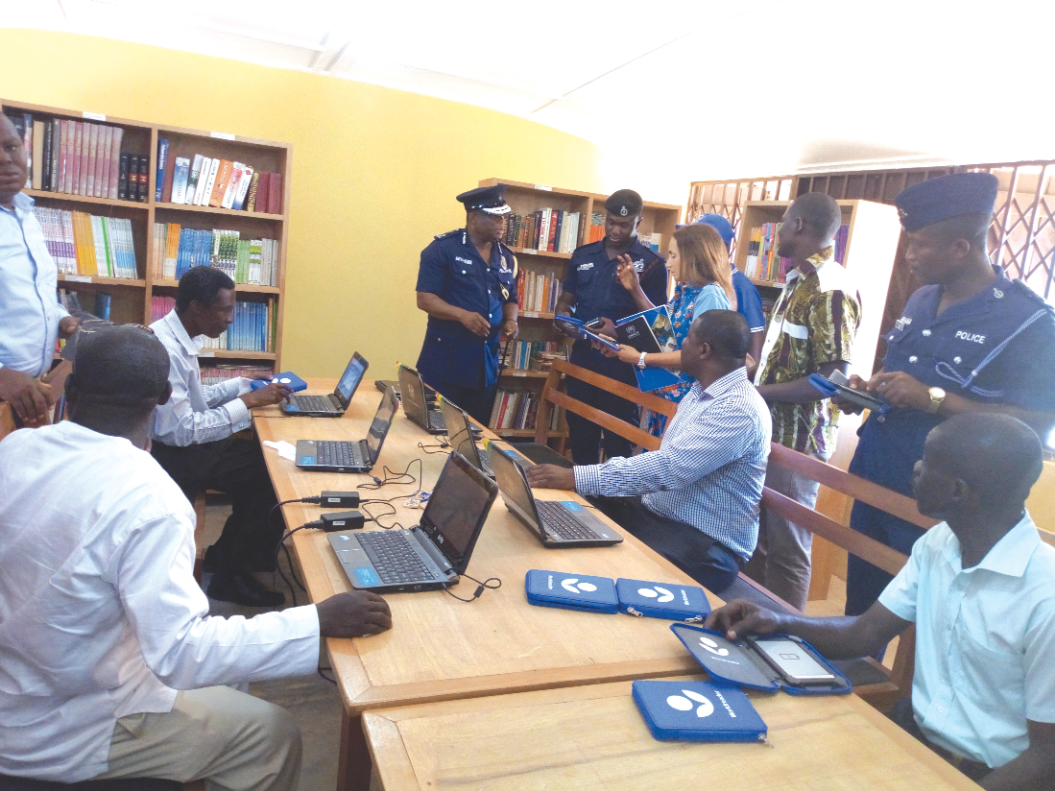
Refugee services to be part of national system
The Ghana Refugee Board (GRB) is collaborating with the United Nations High Commission on Refugees (UNHCR) to finalise processes to mainstream key services in refugee camps into the country’s service delivery system.
As part of the move, infrastructure such as classroom blocks, healthcare centres and police posts at the refugee camps which were run by the UNHCR and other stakeholder agencies are being upgraded to meet national standards for mainstreaming.
Already, the government has taken over the school at the Egyei-krom Refugee Camp located in the Komenda-Edina-Egua-Abirem (KEEA) municipality in the Central Region.
The basic school in that camp has been added to the government's school feeding programme, with about 314 pupils benefiting from one hot meal a day at school.
The health centre at the Ampain Refugee Camp located in the Ellembelle District in the Western Region has also been upgraded and its services put on the National Health Insurance Scheme (NHIS).
On matters of security, the police posts in all the four refugee camps in the country are being upgraded to meet acceptable national standards while efforts are also being made to establish police quarters to accommodate police personnel.
Handover
One such police quarters which was constructed by the UNHCR was handed over to the government last Monday at the Egyei-krom Refugee Camp.
At the same refugee camp, a refurbished classroom block and an electronic library were also commissioned by UNHCR and handed over to the government.
Present at a ceremony to handover those facilities were the UNHCR representative, Ms Loli Kimyaci; the Central Regional Police Commander, Commissioner of Police (COP) David Ampah Bennin; the Programmes Coordinator of the GRB, Mr Tetteh Padi, as well as a Deputy Director at the KEEA municipal Directorate of Education, Mr Barnes Koomson.
The refugees
Following the political unrest that erupted in Cote d’Ivoire in the aftermath of the disputed elections in December 2010, more than 20,000 Ivorian nationals sought refuge in Ghana. Some of them were granted refugee status while others were asylum seekers.
These refugees were housed at the Ampain, Egyei-krom, Fetentaa, and Krisan Refugee camps in the Central, Western, and Brong Ahafo regions.
Since 2011, until the latter part of 2015, the UNCHR provided food for the refugees while other partner stakeholders such as the National Catholic Secretariat (NCS), the Christian Council of Ghana (CCG), and the Adventist Development and Relief Agency (ADRA) supported with health, education and other livelihood programmes.
Following the relative calm that has returned to Cote d'Ivoire, most of the refugees have returned.
Efforts are, therefore, being made to integrate the remaining refugees into the national service delivery system.
Efforts
"The government is doing its bit to ensure that the refugees are protected physically and legally for as long as they live in this country, irrespective of the challenges they face due to the cessation of food supply from UNHCR and the fact that they have to compete with the locals for resources such as land, water, healthcare, and other sources of livelihood," Mr Padi told the Daily Graphic.
He explained further that efforts were being made to ensure that all the essential services that the refugees required to make a decent living were mainstreamed into the national service delivery system.
"The laws by the UNCHR states that a refugee should not stay in a tent for more than six months but we still have people who have been in refugee camps for the past six years. The GRB is engaging with UNCHR and other concerned stakeholders to see how to deal with that challenge," he said.
Meanwhile, as part of moves to make life comfortable for the refugees, an internet centre has been established at the Ampain Refugee Camp.
